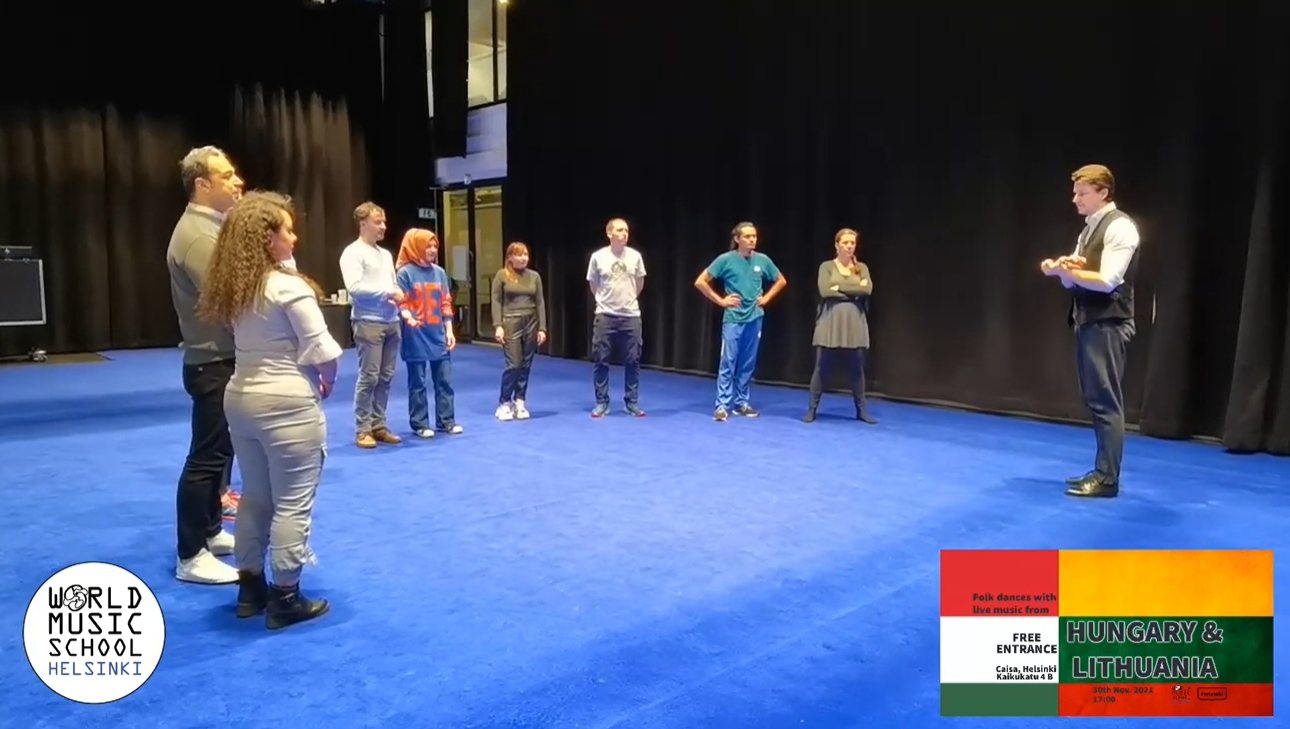Dance with Us
15

Category
vocal
rhythm
Age
8+
Number of participants
6+
Duration
approx. 30 min.
Working method
- playing in pairs
- group work
Musical abilities of the trainers
1 2 3 4 5 6
Equipment and instruments
- music player / app to play the videos
Competences
- cultural / intercultural sensitivity
- attention
- movement coordination
- cooperation
- concentration
- perception
- expression
- sense of rhythm
Dance with Us
Get to know the culture of other European countries
through music and dance.
AIM
The purpose of the game is to strengthen the unity between the group members and in a cultural sense with the other nations living in Europe.
Description
With the help of the videos below, get to know the specifics of the dances of different nations together with the group, and try to imitate the movements!




Recent Comments